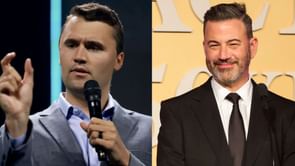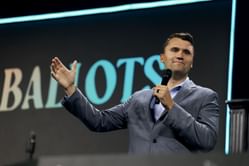
Yes, Steven Speilberg has a phone. Although his office number is listed, his private number is not in the public domain. The given number is (818) 695-5000.
The conversation between Seth Rogan and Gabriel LaBelle makes it evident that he does possess a phone. Spielberg's favorite uncle serves as the inspiration for one of Seth Rogen's characters in the Spielberg film “The Fabelmans,” which is loosely based on the director's own youth. Rogen and co-star Gabriel LaBelle gave an explanation of why they weren't given a direct line of communication to reach the Oscar-winning director on Sunday at People and Entertainment Weekly's photo and video studio at the 2022 Toronto International Film Festival.
Spielberg, according to LaBelle, who portrays the director's younger self in the movie, has "so many stories" and "when you're exposed to him for that amount of time, you have to speak to him about them.” Rogen added, "And he's happy to talk about it." “He does not seem like someone who's uncomfortable talking.” “In many ways, he's similar to a teacher; he's thrilled to share his knowledge with you."
"He's very much aware of the impact he has," says LaBelle. "He knows how excited we are to hear him." " He's very aware of it.” As LaBelle says, Rogen continues, laughing, "That's probably why he doesn't give his phone number to us!" "Exactly," says Rogen. "That's why me and Gabe are the only ones who can't contact him."
Who is Steven Spielberg?
Steven Allan Spielberg, an American film director, writer, and producer, was born on December 18, 1946. He is the all-time most commercially successful director and a key figure in the New Hollywood movement that gave rise to the modern blockbuster.
He has received a number of honors, including the Presidential Medal of Freedom in 2015, the Cecil B. DeMille Award in 2009, the Kennedy Center Honor, three Academy Awards, two BAFTA Awards, four Directors Guild of America Awards, and the AFI Life Achievement Award in 1995. The Library of Congress has designated seven of his movies as "culturally, historically, or aesthetically significant" and added them to the National Film Registry. Spielberg served as a producer for numerous popular movies and television shows. He co-founded Amblin Entertainment and DreamWorks. The composer John Williams and he have collaborated on all but five of his feature films, which is another aspect of his fame.
Several of Spielberg's productions rank among the best and most successful movies of all time. On the 2003 list of the 100 Most Influential People in Film, Premiere placed him at the top. He was included in Time magazine's 2013 list of the 100 most influential people.

Is Steven Speilberg Dyslexic?
Steven Spielberg seems impervious to all obstacles, not even a learning impairment like dyslexia. Spielberg experienced bullying during his school years because no one was aware that he had dyslexia at the time and was struggling to read well.
At the age of 60, after having amassed billions of dollars in wealth, numerous honors, and his Bachelor's degree, Spielberg received his diagnosis.
What is Steven Spielberg’s net worth?
American director, screenwriter, and producer Steven Spielberg has an estimated $8 billion net worth and a $150 million yearly salary. Spielberg is currently the second-richest celebrity in the world, trailing only his good friend and fellow director/producer George Lucas ($10 billion).
Spielberg frequently chooses a relatively low upfront salary of $10 million for his own films in exchange for backend percentages of the gross revenue. In one such deal for the 1993 film "Jurassic Park," Steven received a $250 million payout. That is equivalent to about $360 million in today's money. He received $75 million from the third film, which he did not even direct, and at least $150 million from the sequel.
For "Schindler's List," he famously refused to accept a salary, referring to any earnings as "blood money." Instead, in 1994, he gave the order that all money owed to him be used to support the USC Holocaust Foundation, which pays tribute to and remembers Holocaust survivors.

George Lucas, the writer and director of what would become "Star Wars," believed his passion project would be a huge flop back in the late 1970s. This was because it was being made at the same time as Spielberg was producing "Close Encounters of the Third Kind".
Lucas asked Spielberg if he would trade backend points on their respective films in a particularly weak and desperate moment. As Spielberg would subsequently narrate: "He said, 'You want to trade some points? I'll give you two and a half percent of Star Wars if you give me two and a half percent of Close Encounters. I said, "Sure, I'll gamble with that; great."
Close Encounters was a big hit and made more than $300 million worldwide, but Star Wars eventually made billions.









